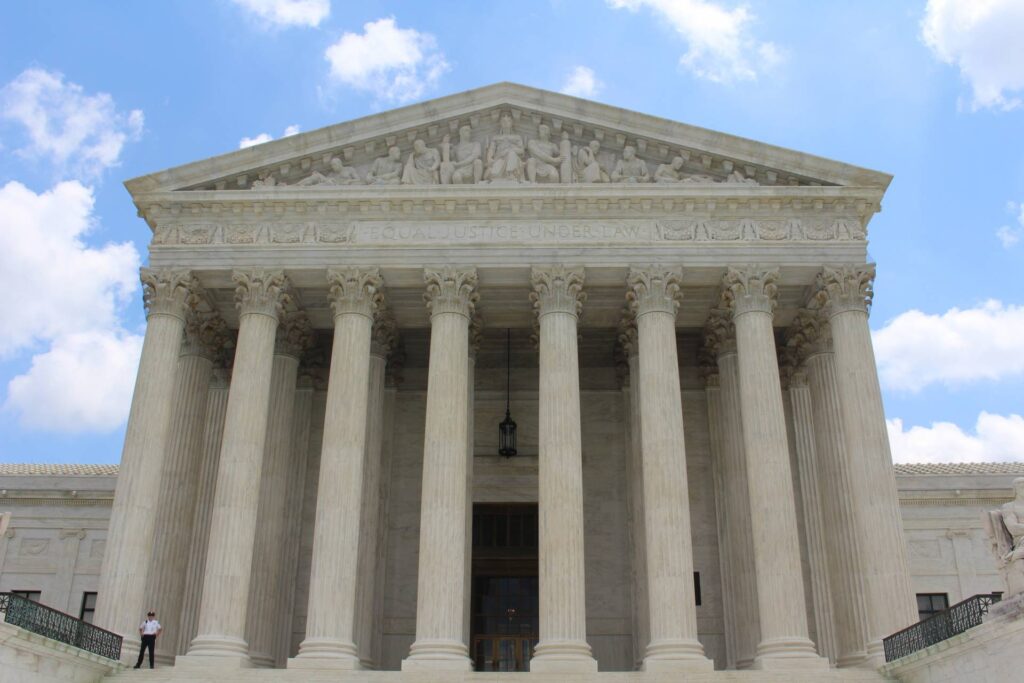California has different sources of employment laws, among them Title 7 and FEHA. Both prohibit employment discrimination based on an individual’s color, race, sex, religion, or national origin, according to 42 U.S.C. § 2000e-2; Cal. Gov. Code § 12940.
The state laws also prohibit discrimination that applies to business practices, including:
- Working conditions, including compensation
- Hiring, promoting, transferring, terminating, or separating employees
- Advertisements
- Applications, screening, and interviews
Despite having the same objective, federal Title 7 and California’s FEHA Laws differ in some ways. San Francisco employment attorneys can help you understand how these laws protect your rights as an employee and which one suits your specific case.
What is California’s Title 7 Law?
Title 7 is a federal law that Congress enacted as part of the Civil Rights Act of 1974. It stipulates that workplace discrimination and harassment is unlawful. Classes protected under Title 7 include:
- Genetic information
- Sex (including pregnancy)
- National origin
- Religion
- Color
- Race

The Statute covers employers with business ventures employing at least 15 employees annually. Both private and government-owned businesses fall into the category. The Title 7 law protects individuals working for or applying to work for Title 7-covered employers in any area within the jurisdiction of the United States.
What is California’s FEHA Statute?
The Fair Employment and Housing Act (FEHA) is California’s unique version of Title 7. The law prohibits workplace discrimination and harassment based on the same cases as Title 7. Hover, FEHA covers additional classes that form a basis for discrimination, namely:
- Age (40 years and over)
- Marital status
- Gender expression
- Gender identity
- Disability
The Statute doesn’t cover discrimination cases based on genetic information, a protected class in Title 7. FEHA applies to California-based government and private-based employers with five or more employees annually. Regarding employee protection, it only covers employees working for or seeking employment in FEHA-covered organizations in California.
It’s illegal for employers to discriminate against employees and job applicants because of the protected classes. It’s also unlawful to retaliate against them if they assert their rights under the law. If you’re a victim of workplace discrimination or retaliation, San Francisco employment attorneys can help you understand the Statute that applies to your case.
If you believe your employment rights have been violated, you should obtain legal advice from San Francisco discrimination lawyers on the way forward. Do the same if you have been a victim of harassment at work.
How Does Title 7 Differ from FEHA?
Differences that stand out between the Title 7 and FEHA statutes include the following:
Protected Classes
The protected classes under Title 7 are color, race, sex, religion, genetic information, and national origin. FEHA covers the same categories, excluding genetic information but including disability, age, gender expression and identity, and marital status.
Covered Employers
Title 7 covers employers in California with enterprises that employ 15 or more employees in a year. It covers both privately-owned businesses and government enterprises. FEHA covers government and private-owned firms in California with five or more employees annually.

FEHA outlaws harassment based on the protected classes against job applicants, employees, unpaid volunteers or interns, or contractors. Harassment is illegal in all workplaces, regardless of the number of employees.
Protected Individuals
Title 7 applies to employees or job seekers working or seeking employment in a Title 7-covered organization in any jurisdiction within the United States. On the contrary, FEHA only applies to employees and job seekers working or seeking employment in FEHA-covered employers in California.
Enforcement Agencies
Equal Employment Opportunity Commission (EEOC) is a federal agency in the United States mandated with enforcing federal laws like Title 7 that prohibit discrimination against employees. On the other hand, the department responsible for investigating and mediating FEHA complaints related to workplace discrimination within the jurisdiction of the State of California is the Department of Fair Employment and Housing (DFEH).
However, EEOC can also investigate and mediate California employment discrimination cases. Accordingly, if you’re unsure where to file a discrimination or harassment complaint, consult a skilled San Francisco equal opportunity employment attorney to guide and enlighten you in the actions and decisions you must undertake.
What is the Difference Between Discrimination and Harassment?
FEHA defines the following actions as illegal discrimination if taken for discriminatory reasons:
- Refusing to hire or employ
- Not selecting a candidate for a training program leading to employment
- Discharging an employee from work or a training program leading to employment
- Discrimination in terms of employment compensation, conditions, or privileges.
The following actions qualify as harassment:
- Derogatory comments, epithets, or slurs
- Physical harassment like rubbing against someone, unwanted touching, physical interference with work or movement, or assault
- Visual harassment like derogatory posters, drawings, cartoons, leering, or lewd gestures
What Are the Available Remedies for Employment Discrimination?
California laws provide various remedies for employees subjected to employment discrimination. These include:
- Punitive damages
- Reasonable accommodations
- Training
- Policy changes
- Out-of-pocket expenses
- Promotion
- Hiring or reinstatement
- Front pay for future lost earnings
- Back pay for past lost earnings

When filing a lawsuit for workplace discrimination or harassment, you may want to use the services of San Francisco discrimination lawyers. Through their experience and skills in discrimination laws, they’ll aggressively fight for your rights to get the remedies you deserve.
A Professional Legal Advisor Protecting Your Employment Rights
Workplace discrimination and harassment can bring a thriving career to an end and put you in a difficult situation. Your employer shouldn’t treat you differently than other employees due to your race, nationality, gender, age, disability, religion, or pregnancy. If you have been a victim of denied benefits, unlawful contract termination or receiving unwanted advances, an experienced employment attorney can help you seek justice.
Our law offices in San Francisco and Oakland can provide the legal counsel you need about Title 7 and FEHA laws. We can also represent and fight with you until you get the best possible resolution to your discrimination case. Contact us to book a free case evaluation to understand your options.






